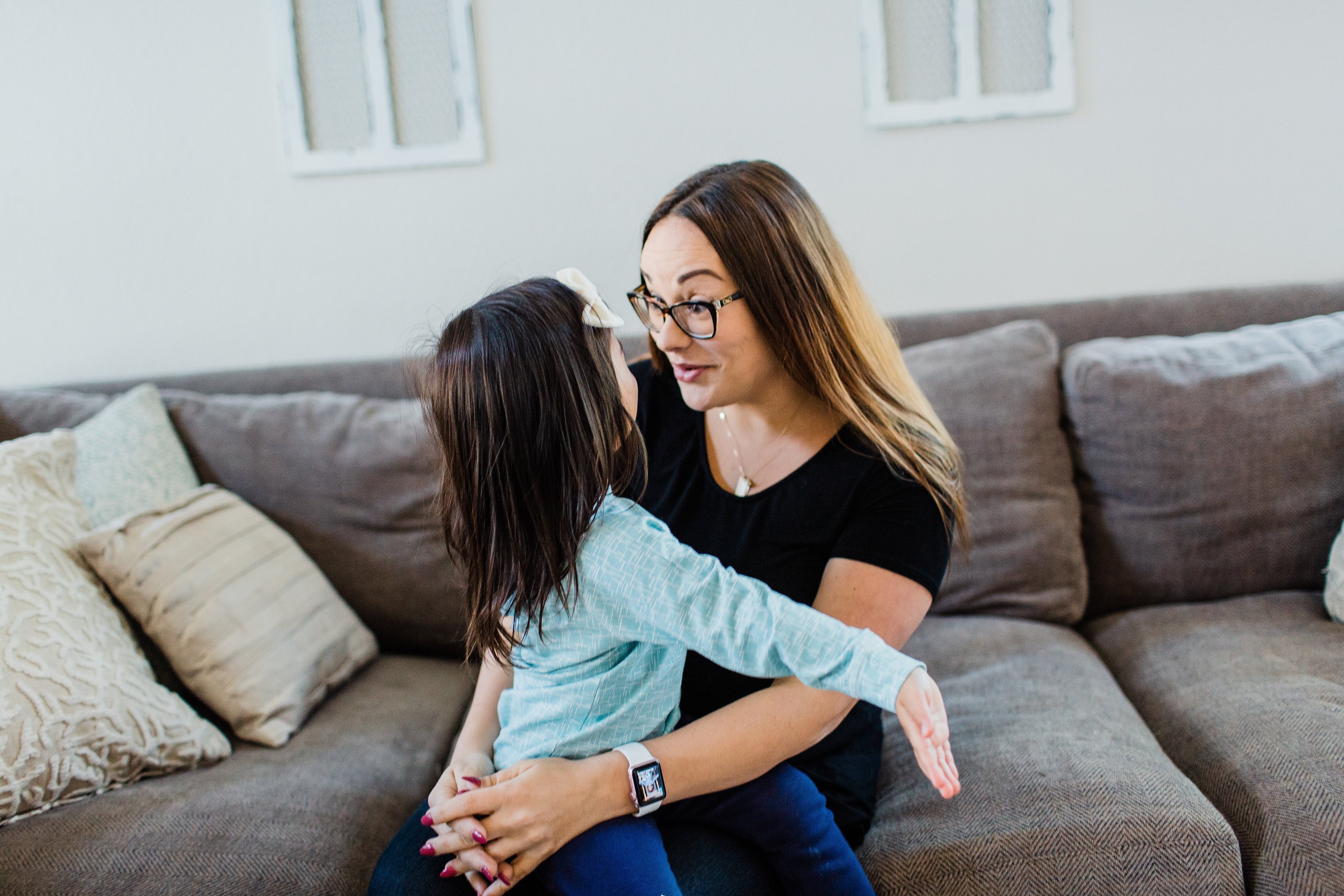The struggle is real. Parenting a toddler is hard and we are right there with you. There are amazing, fun filled days and... the others. Days when you aren't sure whether you have the right answers and there are tears, tantrums and more! We asked our community of Lark parents what stresses them out the most about parenting their toddler and kept hearing the same pain points over and over again. We reached out to the Parenting Mentor, Susan G. Groner to get some expert tips on tackling this difficult age with a little more grace and kindness.
About Susan Groner:

Susan G. Groner is founder of The Parenting Mentor and author of the Mom’s Choice Gold Award book, Parenting: 101 Ways to Rock Your World. Sue’s goal is to help parents reduce the everyday stress and anxiety that inevitably comes from parenting while guiding them in their quest to raise confident and resilient children.
1. Dealing with Toddler Tantrums
“Please don’t have a meltdown!” How many times have you said this to yourself as you’re headed out to run some errands with your toddler. Tantrums are exhausting!! Not just for your child, but for also for you, be it out in public or in the privacy of your own home. Wouldn’t it be great to avoid them altogether? Here are some strategies that might help u to be proactive:
- Make a list of the things that set your child off. Not getting another cookie? No more Cheerios in the box? You won’t buy her that little toy she’s grasping in the store? Time to leave the playground? You get the idea
- Prepare your child for what to expect. “We are going to the store soon. Today we are going to buy just what is on the list. You can help me find all the items.” OR “You can draw for 10 minutes before we have to leave the house. I’ll set a timer for you. You may not have time to finish, but you can work on it later today."
- Reinforce by repeating the plan a few times before and during the activity. On the way to the store try, “ I’m glad you are with me to help me shop. We will be get this done quickly since we are only buying what is on our list.” If this is successful, make sure to also reinforce the positive behavior.
- Use emotion words. If you see that your toddler may be on the verge of a meltdown even if you’ve done the preparation, reflect back what you see. “ It’s hard to not get what you want, isn’t it? It can be very frustrating.” “I can see you are getting angry that we need to leave the playground. It’s not easy to stop doing something fun.” Using a tone of frustration with your toddler will let her know that you understand how she is feeling. Being sad, angry, disappointed, frustrated, etc are all normal feelings.
- HUG. If all else fails, a really tight hug just might do the trick. This tells your child that you understand that they are going through a really tough moment, they don’t have the words to describe how they feel, and most importantly, that it’s okay and you love them.
- Ignore the judgy looks!
- Do NOT give in!
2. Getting Toddlers to Follow Directions or Listen
“Please get your shoes on.”
“Please get your shoes on. “
“Get your shoes on.”
“GET YOUR SHOES ON NOW!!!”
Can you relate? I’m sure u can! Sounding like a broken record isn’t fun. It’s infuriating and frustrating when your toddler ignores your requests. Try these simple strategies:
- Speak at their level. This means kneeling down. Your child needs to stop what he’s doing and look at you while you speak. Toddlers may hear you from afar, but as you have experienced, they are not listening. They are engaged in something else and don’t yet have the ability to refocus.
- Speak softly and firmly. Nobody wants to be barked at.
- No “but’s”. By replacing “but” with “and”, you let your child know that you understand AND that you are in charge. “I know you would like to continue playing and it’s time to get your shoes on.” While this seems so simple, it really helps!
- Make it a game. Whether is “how fast can you…” or “I’m going to guess which shoes you are going to put on now”, this can make it fun for your child.
3. Potty Training Troubles
Potty training can be one of the most stressful things for parents and which is why I suggest not doing it! Why? Because inevitably, it becomes a control issue and one that you just won’t win. Your child will end up using a toilet, so instead of a bathroom battle, try these steps:
- Make sure that your child sees you sitting on the toilet. I know that’s not going to be a problem since we don’t get much privacy in the bathroom!
- Buy a potty. Show it to your toddler and let him know it’s for him when he is ready. You can leave it in the bathroom if u want, but don’t mention it again. Kids are smart and they will let you know when it’s time.
- Embrace the pull-up! These were made for the transitional time between diapers and undies. Both you and your child should feel no shame around this.
- Ignore pressure from your in-laws or other parents. Have an answer ready when asked it you have started potty training. “We are following Johnny’s lead instead of stressing and bribing. We’re not worried! It’ll happen.” Repeat that until you believe it too!
Want more guidance from Susan? More information on her services and book below! Susan G. Groner is founder of The Parenting Mentor and author of the Mom’s Choice Gold Award book, Parenting: 101 Ways to Rock Your World. Sue’s goal is to help parents reduce the everyday stress and anxiety that inevitably comes from parenting while guiding them in their quest to raise confident and resilient children.
Sue is the creator of the CLEARR™ method of parenting, developed through years of trial (and her fair share of errors!) with her own family. CLEARR™ adheres to the belief that parenting strategies should be grounded in six important pillars: Communication, Love, Empathy, Awareness, Rules, and Respect. This has become the cornerstone of her practice as The Parenting Mentor. You can follow Sue @theparentingmentor and reach out for a skype session at sue@theparentingmentor.com.
